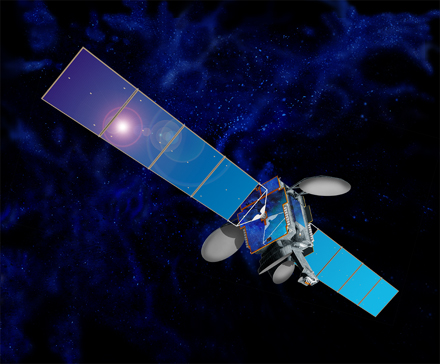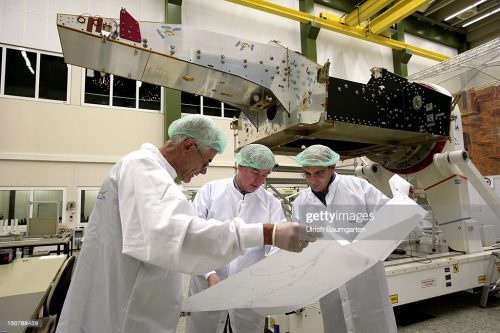
Back to selection
GEO Satellite
Telstar 11 (Orion-1) GEO
succesfull

De-orbited
Launch date
29 November 1994
Country

Purpose
Communication
Position
15° West
Manufacturer
Operator
Launch operator
Launch vehicle
Atlas IIA
Expected lifetime
13 Years

Regions
Europe Region
North America Region
The Telstar 11 (Orion-1) at 15° West telecommunications satellite was operated by Orion Network Systems, Inc. from USA. The satellite was constructed by Matra Marconi Space (aka EADS Astrium – Airbus Defense & Space), based on their EuroStar-2000 bus, which made it the first satellite purchased of a European satellite by a US-based company.
The satellite had 34 Ku-band transponders serving Europe, the United States to the Rocky Mountains and parts of Canada and Mexico, providing video for broadcast and business television, high-speed Internet access and multimedia services, broadband and data networking. The Orion-1 satellite was equipped with many features which were innovative at the time of its launch and are now to be found as standard on many modern spacecraft;
- all-solid state power amplifier payload,
- dual 2.3m Kevlar moulded gridded-shaped reflectors with both single and multiple feed horns,
- hinge deployment and trimming mechanisms for 2º of movement throughout the life of the satellite.
In 1998 Orion Network Systems, Inc. was acquired by Loral Space & Communications, Inc. and the satellite was integrated into their fleet, operated by Loral Skynet under the new name Telstar 11.
A second satellite named Orion-2, a carbon copy of Orion-1, was originally ordered, but cancelled in 1993. An improved Orion-2 was ordered instead. This order was later cancelled again when Orion merged with Loral Skynet, who opted to procure satellites from their sister company, Space Systems/Loral (SS/L). It was subsequently sold to Eutelsat as a backup satellite who renamed the satellite in Eutelsat-4A in 2012.
The Telstar 11 (Orion-1) at 15° West satellite was successfully launched on November 29st, 1994, on an Atlas IIA rocket, operated by launch operator Lockheed Martin (ULA).
GEO Satellite
Telstar 11 (Orion-1)
succesfull
GEO Satellite
Telstar 11 (Orion-1)
succesfull
